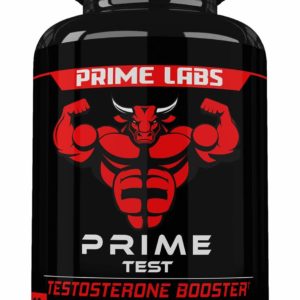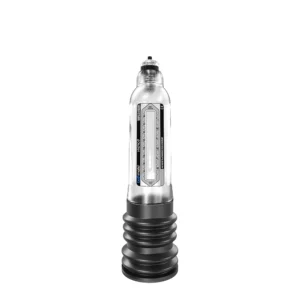
I hadn’t heard “the two most important days in your life are the day you were born and the day you found out why” until recently, but I can’t get them out of my mind. I learned that they were attributed to Mark Twain. I thought the first day was both obvious and simple: I was born on December 21, 1943. I’ve been thinking about the date a lot lately since I will be 80 this year. My wife, Carlin, will be 85. We’re both dealing with the challenges of health and mortality, as are many of our friends.
The Day I Was Born
Thinking about my birth, I realize that it was more complex than I originally thought: “Congratulations, Mrs. Diamond. You have a healthy baby boy.” My parents had gotten married in 1934 and had been trying to have a baby for some time. Having given up hope, they finally went to a doctor in New York who had developed a new procedure of injecting my father’s sperm into my mother’s womb.
When they found out she was pregnant they were overjoyed, but my mother was terrified she would miscarry and tiptoed down 5th Avenue on her walks to keep the baby firmly attached. They were so sure I was going to be a girl that they had lots of soft dolls and a number of girl’s names ready for me and my arrival with all parts intact, including my little penis, caused some serious confusion.
Being Jewish, they had me circumcised on the 8th day after my birth, and my mother told the story of the unkindest cut causing me to shoot a stream of urine up over my head hitting my father, who had been holding me down while I screamed bloody murder, in the eye. Even then I knew that my foreskin was not only mine and part of me, but had a useful purpose, and I was not a bit happy about its removal.
I still had not been named and they finally settled on John Elliott Diamond, which I shortened to a more manly “Jed” when I went off to college.
The Day I Found Out Why
On November 21, 1969, I held my newborn son, Jemal, in my arms and made a vow that I would be a different kind of father than my father was able to be for me and do everything I could to create a world where men were fully healthy in body, mind, and spirit. I realized that this was my calling in life, the reason I was born.
My own father had a “nervous breakdown” when I was five years because he felt like a failure as man because he couldn’t earn a living supporting his family at the work he loved. He took an overdose of sleeping pills and was committed to the state mental hospital in Camarillo, just north of our home in Los Angeles. I grew up wondering what happened to my father, when it would happen to me, and how I could do to keep other families from experiencing the pain our family went through. I wrote about our healing journey in my book, My Distant Dad: Healing the Family Father Wound and offer an on-line course for men and women.
My calling has expanded over the years. Most recently I have invited a number of colleagues who share my passion to improve men’s health to join me for what I call my Moonshot for Mankind and Humanity.
I believe we all come into the world with a life purpose. Here’s how psychologist James Hillman describes it in his book, The Soul’s Code: In Search of Character and Calling.
“For me what is lost in so many lives, and what must be recovered is a sense of personal calling, that there is a reason I am alive. It is the feeling that there is a reason my unique person is here and that there are things I must attend to beyond the daily round and that give the daily round its meaning.”
The Japanese have a name for it. They call it Ikigai, or “purpose for waking up in the morning.” A friend and colleague whose purpose for waking up in the morning connects with men’s health is Shana James.
Shana James and The Moonshot for Mankind
When I reached out to colleagues who I knew were doing great work to help men and their families, I contacted Shana James who had recently written the book, Honest Sex: A Passionate Path to Deepen Connection and Keep Relationships Alive. Her work was featured in my latest book, Long Live Men! The Moonshot Mission to Heal Men, Close the Lifespan Gap, and Offer Hope to Humanity, which will launch to the world later this year.
Here’s what Shana shared about her own calling:
“In my twenties, I was part of an intentional community. We decided to be honest and vulnerable with each other. We committed to working things out when they got tough instead of bailing when it got uncomfortable.
“Two men who were part of the community felt they grew so much from the honest feedback, especially from women, that they started a workshop called the Authentic Man Program (AMP). They invited me and a few other women to participate. Our role was to give men honest and loving feedback. This supported them to strengthen their self-awareness and understand why women were reacting to them in undesirable ways. Most of the men were in heterosexual relationships, but not all.
“After the first workshop, as we debriefed with participants, a man spoke up. With tears in his eyes, he shared that our team of women brought him back to life. He said our acceptance and love was a balm to his heart in a very challenging time as he went through a divorce and figured out how to be a father. Before the weekend, he hadn’t been sure if he wanted to be alive.
“I did not stop crying for hours. I realized that through my love, and becoming an ally to men, I could help keep men alive and support them to thrive. I realized I could be a safe woman for men to be vulnerable with. I could see a bigger vision for how this would impact not only these men, but families, communities, and the earth. I saw that men being understood and supported, especially in their most vulnerable places, would allow them to love themselves and bring more love to the world.
“What made me decide to join the Moonshot Mission? When Jed was on my podcast for men—Man Alive—to talk about the father wound and male depression, I was impressed. He brought depth, love, and wisdom to the listeners, and it was clear to me that he was an expert in men’s healing.
“When he created the mission for men to live longer, happier, and healthier lives, I jumped at the chance to be involved. Even as my work focuses on supporting men to feel connected and confident in their romantic relationships, there is a deeper mission. I want men to feel more self-love, aliveness, and fulfillment. I want men to thrive, first for themselves and then to become stewards of a healthier world and communities.
“Collaborating with those who support different facets of men’s well-being allows us to create the cultural change necessary to help men break free from the Man Box that fosters depression, anxiety, and even suicide.
“For men (and most humans), relational health is one of the determining factors of emotional health and a fulfilling and longer life. But many men were taught to ‘man up’ and struggle alone. So, when relationship challenges arise (and they always do), men often tend toward shame and isolation. They do not get the help they need to transform their pain into deeper connection and become more self-respecting and loving.
“As a relationship coach, I support men to be sovereign and connected—to know, and then communicate, their wants, fears, and vulnerabilities in a way that creates understanding and intimacy. I support men to have clarity about the impact their actions and words have on others, empowering them to collaborate to create the outcomes they desire.
“There is no doubt men’s work and rites of passage are powerful and important for men’s growth. There is a certain kind of healing men need to do with other men. There is also healing men need to do with women. As men return from workshops or men’s circles, it can be a challenge to translate their learnings into effective communication and collaboration with women in their lives.
“I am a practice ground for men to cultivate the awareness to consciously create their relationships. As I support men to know their own worth, they then isolate and explode less often. They generate their own safety, which allows them to open their hearts and reveal their humanity, creating the kind of intimacy that is a foundation of thriving.
“What is my vision for the future of this movement? Hurt people hurt others. The destructive power dynamics that plague our world result from the pain so many are feeling internally. Men hold a specific piece of this pain, and it is driving the suicide rate up and life satisfaction down.
“In order to support men to live healthier and longer, I see the need for a cultural shift. Men need the encouragement to take care of their health and receive care. They can be released from the culturally induced shame of needing to pretend they have it all together. I see this movement bringing awareness to men’s humanity and vulnerability. I see organizations around the world partnering to create a support network for men. I see us rallying people around the goal of men living longer, more fulfilling lives, and how this creates a more just and peaceful world. You can learn more about my work here: https://shanajamescoaching.com/.”
What is your own calling, your ikigai? Why are you here and what is your own unique contribution to the world? I look forward to hearing from you. Drop me a note to Jed@MenAlive.com. Put “Why I’m here” in the subject line. If you would like to subscribe to our free weekly newsletter, I invite you to join us here.
The post The Two Most Important Days in Your Life: The Day You Were Born and the Day You Found Out Why appeared first on MenAlive.
-
Stronger Erections
Havasu Nutrition L-Arginine | Endurance and Circulation Booster with Nitric Oxide, 60 Caps
$22.99




